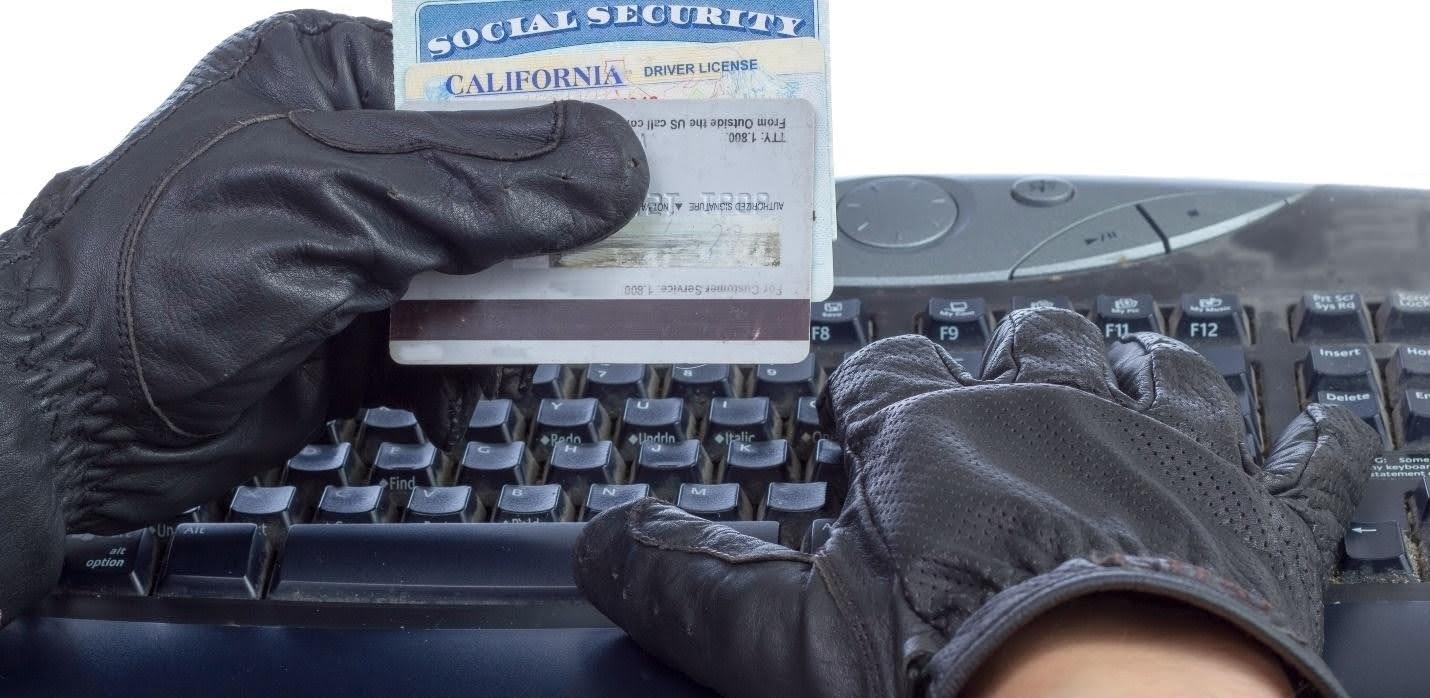Understanding Arizona White Collar Crimes:

Facing Arizona charges for a white collar crime is overwhelming. The legal system is complex and can be intimidating. Understanding the specifics of the crime and the potential penalties if convicted are important steps in navigating the legal system.
Lawyer Listed created this guide to provide you with a detailed overview of the most common Arizona white collar crimes. It explains key terms and sentencing guidelines. It also answers frequently asked questions about these charges.
Remember, this information is for educational purposes only and is not a substitute for legal advice from an experienced Arizona criminal defense lawyer. If you are facing charges for a white collar crime, consult with a qualified Arizona criminal attorney as soon as possible. Lawyer Listed simplifies this process by matching you with an elite criminal defense lawyer tailored to your case.
Key Concepts of Arizona White Collar Crimes:
- Intentionally or with intent to means that there was an objective to cause a result or engage in a specific conduct. In other words, you meant to do it.
- Knowingly means that you were aware of your actions or the circumstances that make up the offense. It doesn’t require that you knew your conduct was illegal; you just needed to be conscious of what you were doing or the situation you were in.
- Reckless means being aware of and willfully disregarding a substantial and unjustifiable risk, which results in harmful consequences.
Issuing Bad Checks: ARS 13-1807

Arizona back check laws make it a crime to write or pass a check knowing you lack sufficient funds. Under ARS 13-1807, you must have enough money in your account to cover the check you are writing plus any other outstanding checks.
Presumptions of Knowledge
- No Account/Closed Account: You had no account or a closed account with the bank when you wrote the check.
- Failed Payment After Notice: The bank refused payment due to insufficient funds within 30 days of the check being written, and you failed to pay the full amount plus reasonable costs within 12 days of being notified of the bank’s refusal.
Affirmative Defenses
- Payee Knowledge Defense: The person receiving the check knew, was told, or had reason to believe you didn’t have enough money in your account to cover the check.
- Postdated Check Defense: The check was postdated and there were sufficient funds available on that later date to cover the full payment.
- Bank Adjustment Defense: The lack of funds was caused by the bank making an adjustment to the account without notifying you.
Penalties for Issuing a Bad Check
The punishment for issuing a bad check in Arizona varies based on the check amount. The Arizona bad check statute outlines the following penalties:
| Classification | Description of Offense | Prison/Jail | Probation (max) |
|---|---|---|---|
| Class 6 Felony | Issuing a bad check for $5,000 or more and failing to pay the full amount—plus interest and fees—within 60 days of receiving notice. | Prison: 0.33 – 2 years | 3 years |
| Class 1 Misdemeanor | Issuing a bad check for less than $5,000 | Jail: Up to 6 months | 3 years |
Frequently Asked Questions (FAQs)
A: You may be notified either directly or in writing. Written notice is considered valid if sent by certified mail or regular mail with an affidavit of service, using your address from the check, bank records, or the recipient’s records.
A: The statute of limitations for prosecuting bad check cases varies depending on the charge you are facing. The statute of limitations for a misdemeanor is one year. The statute of limitations for a class 6 felony is seven years. This means that the prosecution must file charges within these timeframes, starting from the date the crime was committed.
Computer Tampering Arizona: ARS 13-2316

ARS 13-2316 defines computer tampering as a broad range of illegal activities involving computer systems and networks. Specifically, the following actions, committed without authority or exceeding authorization, will lead to computer tampering Arizona charges:
- Fraudulent Access: Accessing, altering, damaging, or destroying computer systems with intent to defraud, deceive, or control property/services through false pretenses.
- Data Destruction: Knowingly altering, damaging, deleting, or destroying computer programs or data.
- Computer Contamination: Knowingly introducing computer contaminants (like viruses) into computer systems or networks.
- Service Disruption: Recklessly disrupting computer services or denying network access to authorized users.
- Digital Harassment: Recklessly using computers to engage in conduct that alarms, torments, threatens, or terrorizes another person, where the conduct: (a) causes a reasonable person substantial emotional distress and (b) serves no legitimate purpose
- Forced Site Retention: Preventing users from exiting websites or systems to compel continued communication or content display.
- Confidential Information Theft: Knowingly obtaining confidential information or non-public records by accessing computer systems operated by the state, political subdivisions, healthcare providers, clinical laboratories, or their service providers.
- Unauthorized Access: Knowingly accessing any computer, computer system, network, or contained software, programs, or data.
Penalties for Computer Tampering
The penalties for computer tampering in Arizona are severe and vary based on the specific charge, your criminal history, and the circumstances of the crime. The following table summarizes the potential consequences for each type of offense:
| Classification | Description of Offense | Prison (years) | Probation (max) |
|---|---|---|---|
| Class 2 Felony | Targeting Critical Infrastructure | 3 – 12.5 | 7 years |
| Class 3 Felony | Fraudulent Access | 2 – 8.75 | 5 years |
| Class 4 Felony | Data disruption, computer contamination, service disruption | 1 – 3.75 | 4 years |
| Class 5 Felony | Digital harassment | 0.5 – 2.5 | 3 years |
| Class 6 Felony | Confidential information theft, unauthorized access | 0.33 – 2 | 3 years |
Frequently Asked Questions (FAQs)
A: Critical infrastructure resource is a broad term including systems vital for public safety, health, and welfare. Examples include power grids, water treatment facilities, emergency response communication networks, and other essential services.
A: The court will order the forfeiture of any computer system or communication device that was exclusively owned or used by you in committing the crime. The equipment will be sold, destroyed, or otherwise properly disposed of.
Credit Card Fraud: ARS 13-2105

ARS credit card fraud involves the fraudulent use of a credit card to obtain illegal gains. Credit card fraud in Arizona is divided into the following a categories:
- Using Invalid Cards: With intent to defraud, using a credit card or credit card number to obtain money, goods, services, or other valuable items when the card or number was:
A. Obtained or kept illegally
B. Known to be forged, expired, cancelled, or revoked - False Representation: Obtaining or attempting to obtain money, goods, services, or other valuable items by:
A. Representing yourself as the cardholder without the cardholder’s consent
B. Claiming to be the holder of a credit card that was never actually issued
Penalties for Credit Card Fraud
Credit card fraud in Arizona can be charged as a misdemeanor or felony depending on several factors, including the value of goods or services you fraudulently obtained or attempted to obtain.
| Classification | Description of Offense | Prison/Jail | Probation (max) |
|---|---|---|---|
| Class 5 Felony | Fraudulent use of a credit card where the total value of money, goods, services, or other items obtained or attempted to be obtained is $1,000 or more within any consecutive six-month period. | Prison: 0.5 – 2.5 years | 3 years |
| Class 6 Felony | Fraudulent use of a credit card where the total value of money, goods, services, or other items obtained or attempted to be obtained is at least $250 but less than $1,000 within any consecutive six-month period. | Prison: 0.33 – 2 years | 3 years |
| Class 1 Misdemeanor | Fraudulent use of a credit card | Jail: up to 6 months | 3 years |
Frequently Asked Questions (FAQs)
A: Yes. The law considers the total value of all fraudulent transactions over any consecutive six-month period. So even if each transaction is small, they can collectively result in felony charges if they exceed the $250 or $1,000 thresholds.
A: Yes. Credit card fraud in Arizona covers both actual use and attempted use of a fraudulent credit card. Even if the transaction fails, the attempt to obtain money, goods, or services with intent to defraud is sufficient to trigger criminal liability.
Embezzlement: ARS 13-1802

ARS Embezzlement is prosecuted under the Arizona theft statute (ARS 13-1802). Embezzlement in Arizona occurs when a person entrusted with property misappropriates it for personal use without authorization.
Common Embezzlement Schemes:
- Fake Vendor Payments: Creating fictitious vendors and issuing company payments for non-existent services
- Expense Reimbursement Fraud: Filing false reimbursement claims for personal expenses disguised as business costs
- Check Fraud: Writing checks to yourself or others you know, or intercepting legitimate vendor payments and forging endorsements.
Penalties for Embezzlement
The penalties for embezzlement in Arizona depend on the amount you stole, your criminal history, and the circumstances of the crime. The following table summarizes the potential consequences following an embezzlement conviction:
| Classification | Theft Amount | Prison/Jail | Probation (max) |
|---|---|---|---|
| Class 2 Felony | $25,000 or greater | Prison: 3 – 12.5 years | 7 years |
| Class 3 Felony | $4,000 - $24,999 | Prison: 2 – 8.75 years | 5 years |
| Class 4 Felony | $3,000 - $3,999 | Prison: 1 – 3.75 years | 4 years |
| Class 5 Felony | $2,000 - $2,999 | Prison: 0.5 – 2.5 years | 3 years |
| Class 6 Felony | $1,000 - $1,999 | Prison: 0.33 – 2 years | 3 years |
| Class 1 Misdemeanor | Less than $1,000 | Jail: up to 6 months | 3 years |
The penalties for embezzlement in Arizona depend on the amount you stole, your criminal history, and the circumstances of the crime. The following table summarizes the potential consequences following an embezzlement conviction:
Penalties for Embezzlement
The penalties for embezzlement in Arizona depend on the amount you stole, your criminal history, and the circumstances of the crime. The following table summarizes the potential consequences following an embezzlement conviction:
Frequently Asked Questions (FAQs)
A: Embezzlement can be committed by anyone who is entrusted with property and then misuses it for personal gain without permission. This includes employees, managers, or any individual responsible for handling someone else’s assets.
A: Embezzlement involves the unlawful use of property that was willingly entrusted to you. Theft, on the other hand, involves taking property that was never entrusted or given to you in the first place.
Forgery: ARS 13-2002

ARS forgery, under ARS 13-2002, involves the intentional falsification of documents, signatures, or other items with intent to deceive or defraud. The Arizona forgery statute is divided into the following categories, each requiring the intent to defraud:
- Creating/Altering Documents: Falsely making, completing, or altering a written instrument
- Possessing Forged Documents: Knowingly possessing a forged instrument
- Using/Presenting Forged Documents: Offering or presenting a forged instrument or one containing false information, regardless of whether it’s accepted
ARS forgery includes making a fake ID, changing the details on a check, or using a forged document to complete a transaction. Possession of five or more forged instruments creates a strong presumption of intent to defraud.
Penalties for Forgery
The sentence for ARS forgery depends on the facts of the crime and your criminal history. The following table summarizes the potential consequences for each type of offense:
| Classification | Description of Offense | Prison (years) | Probation (max) |
|---|---|---|---|
| Class 3 Felony | Using a forged instrument to buy, lease, or rent a drop house—property used for smuggling | 2 – 8.75 | 5 years |
| Class 4 Felony | Forgery | 1 – 3.75 | 4 years |
Frequently Asked Questions (FAQs)
A: A forged instrument refers to any item—such as a document, banknote, artwork, or signature—that is falsely made, altered, completed, or used with intent to defraud. Even if a signature is authentic, the item may still be considered forged if other key details are falsified.
A: Yes. Forgery charges in Arizona apply to both physical and digital documents if they are created or modified with the intent to deceive or defraud.
Fraudulent Schemes: ARS 13-2310

The ARS Fraudulent Schemes law prohibits knowingly obtaining any benefit through deceptive or dishonest methods. To be convicted of ARS fraudulent schemes, you must have knowingly:
- Used Deceptive Methods: Employed false or fraudulent pretenses, representations, promises, or material omissions.
- Acted Pursuant to a Scheme or Artifice: Operated according to a scheme or artifice designed to defraud. A “scheme” refers to a plan, while an “artifice” means an evil or artful strategy.
- Obtained Benefits: As a result of the scheme, obtained some benefit
Penalties for Fraudulent Schemes
The sentence for ARS fraudulent schemes depends on the facts of the crime, the amount dishonestly obtained, and your criminal history. The following table summarizes the potential consequences for this crime:
| Classification | Description of Offense | Prison (years) | Probation (max) |
|---|---|---|---|
| Class 2 Felony | Fraudulent Schemes: benefit of $100,000 or more | 3 – 12.5 | Unavailable |
| Class 2 Felony | Fraudulent Schemes: benefit of less than $100,000 | 3 – 12.5 | 7 years |
Frequently Asked Questions (FAQs)
A: A material omission is the failure to disclose information that would meaningfully impact someone’s decision. It involves facts that a reasonable person would consider important when evaluating a transaction or interaction.
A: No. Commission of ARS fraudulent schemes does not require that the victim rely on your false statements or omissions. The prosecution must only prove that you knowingly obtained a benefit through a fraudulent scheme or artifice.
Identity Theft: ARS 13-2008 _ ARS 13-2009 _ ARS 13-2010

Identity Theft
Arizona identity theft laws make it a crime to knowingly use someone else’s identity without their consent and with unlawful intent. Specifically, it is illegal to:
- Take, buy, create, record, possess, or use someone else’s personal or entity-identifying information
- Without that person or entity’s consent
- With the intent to commit an unlawful act, cause harm or loss (even if no actual loss occurs), or obtain or continue employment
Personal identifying information (PII) is any data that can be used to recognize or impersonate an individual. Entity identifying information is business or organizational data unique to the entity.
Aggravated Identity Theft
Identity theft becomes more serious as the number of victims increases or the magnitude of the harm increases. Both of the following illegal actions constitute aggravated identity theft:
- Multiple victims: Knowingly taking, buying, creating, recording, possessing, or using the identifying information of three or more individuals or entities without their consent, with the intent to commit an unlawful act or inflict harm—regardless of whether any financial loss occurs.
- Significant financial harm: Knowingly taking, buying, creating, recording, possessing, or using the identifying information of an individual or entity without their consent, with the intent to commit an unlawful act or inflict harm and cause economic loss of $3,000 or more.
Trafficking in the Identity of Others
The most serious form of identity theft is the trafficking of identifying information. It is a crime to knowingly sell, transfer, or transmit personal or entity-identifying information without consent, for any unlawful purpose, to cause harm or loss, or to enable another person to obtain or retain employment. It is not an element of the crime that an individual or entity actually suffer economic loss.
Penalties for Identity Theft
The penalties for identity theft depend on the facts of the crime and your criminal history. The following table summarizes the potential consequences for this crime.
| Classification | Description of Offense | Prison (years) | Probation (max) |
|---|---|---|---|
| Class 2 Felony | Trafficking in the Identity of Others | 3 – 12.5 | 7 years |
| Class 3 Felony | Aggravated Identity Theft | 2 – 8.75 | 5 years |
| Class 4 Felony | Identity Theft | 1 – 3.75 | 4 years |
Frequently Asked Questions (FAQs)
A: PII includes many types of information that can be used to identify and pretend to be someone else, including full name, social security number, driver's license number, date of birth, address, credit card numbers, bank account details, medical records, and biometric data (like fingerprints or facial recognition).
A: No. The Arizona identity theft statute excludes the use of a fake ID by a person under the age of 21 to get into a bar or buy alcohol. Using a fake ID is its own crime with its own punishment.
Insurance Fraud: ARS 20-463 _ ARS 13-2310

Arizona insurance fraud, also known as AHCCCS fraud, involves intentionally submitting false information to obtain healthcare benefits or avoid payment responsibilities. This fraudulent activity applies to both healthcare providers and AHCCCS benefit recipients with significant criminal consequences at state and federal levels.
Examples of AHCCCS Fraud:
- Billing for Services Not Provided: Charging for medical services, procedures, or treatments that never occurred or claiming more visits than actually happened
- Falsifying Patient Diagnoses: Misrepresenting medical conditions to justify unnecessary procedures and obtain payments for medically unnecessary services
- Misrepresenting Procedures Performed: Lying about medical procedures to obtain payment for non-covered services
- Upcoding and Unbundling: Billing for higher-paying procedures than performed or billing separately for procedures usually bundled together
- Eligibility Fraud: Providing false eligibility information such as income or residency status to qualify for AHCCCS benefits
- Resource Misrepresentation: Misrepresenting available assets or resources to qualify for increased benefits
- Falsification of Claims: Various deceptive activities including record alterations, incorrect coding, double billing, kickbacks, and submitting false data
Penalties for Insurance Fraud
The penalties for AHCCCS fraud in Arizona are severe and can include both civil and criminal repercussions, with state and federal consequences potentially overlapping. The following table outlines the Arizona sentence for insurance fraud:
| Classification | Description of Offense | Prison (years) | Probation (max) |
|---|---|---|---|
| Class 2 Felony | Fraudulent Schemes (ARS 13-2310) | 3 – 12.5 | 7 years |
| Class 6 Felony | AHCCCS Fraud (ARS 20-463) | 0.33 – 2 | 3 years |
Frequently Asked Questions (FAQs)
A: Healthcare providers may commit insurance fraud by billing for more expensive services than were actually provided (upcoding), separating a single procedure into multiple billable components (unbundling), falsifying patient diagnoses to justify unnecessary treatments, or accepting secret payments (kickbacks) in exchange for patient referrals.
A: Patients may commit insurance fraud by submitting false information on health coverage applications, misrepresenting income or health status to qualify for public programs, failing to report other insurance coverage, or providing inaccurate details about household members. These violations can lead to prosecution, repayment of benefits, and loss of eligibility.
Arizona Money Laundering: ARS 13-2317

ARS 13-2317 defines money laundering as the act of disguising the origins of illegally obtained funds. Money laundering is intended to make illegal money appear legitimate and untraceable in order to integrate it into the financial system.
Arizona divides money laundering into three degrees based on severity and type of activity.
First degree Money Laundering
Knowingly initiating, organizing, planning, financing, directing, managing, supervising, or engaging in money laundering business.
- Leading/organizing money laundering operations
- Planning, financing, directing, managing laundering activities
- Second-degree money laundering connected to terrorism or murder
Second degree Money Laundering
Money laundering activities that involve handling, concealing, or facilitating criminal proceeds. Examples of second degree money laundering include:
- Property Interest: Knowingly getting/keeping proceeds from racketeering
- Facilitating Crime: Knowingly providing property to support racketeering
- Hiding Money: Knowingly concealing the source, location, or ownership of criminal funds
- False Documents: Intentionally or knowingly making false statements in banking or financial institution reports/applications
- Avoiding Reports: Intentionally or knowingly circumventing required financial reporting
- Fake Identity: Intentionally or knowingly using false identities in laundering transactions
- Forged Papers: Intentionally or knowingly using forged documents in laundering schemes with financial institutions
Third degree Money Laundering
Money laundering activities that involve bribing money transmitters to process illegal funds.
- Bribing Money Transmitters – Offering payment to ignore legal requirements
- Taking Bribes – Money transmitters accepting payment to break compliance rules
Penalties for Money Laundering
The penalties for money laundering in Arizona are significant and vary based on the specific charge, your criminal history, and the circumstances of the crime. The following table summarizes the potential consequences for each type of offense:
| Classification | Description of Offense | Prison (years) | Probation (max) |
|---|---|---|---|
| Class 2 Felony | 1st degree money laundering: Leading/organizing operations | 3 – 12.5 | 7 years |
| Class 3 Felony | 2nd degree money laundering: Facilitating/concealing transactions | 2 – 8.75 | 5 years |
| Class 6 Felony | 3rd degree money laundering: Bribery of money transmitters | 0.33 – 2 | 3 years |
Frequently Asked Questions (FAQs)
A: Racketeering refers to participating in organized criminal activity, such as drug trafficking, illegal gambling, or extortion. It’s often connected to money laundering because criminal groups need to hide or “clean” the money they make from these illegal operations.
A: A money transmitter is a business that transfers money for people—like Western Union or similar services. Money launderers may use these businesses to move illegal money around, making it harder for law enforcement to trace where the money came from.
Racketeering (RICO): ARS 13-2301 _ ARS 13-2312 _ ARS 13-2313 _ ARS 13-2314

Arizona RICO laws target organized crime by prosecuting patterns of criminal activity within enterprises for financial gain.
Enterprise
Arizona law defines “enterprise” broadly to include both legitimate businesses and informal criminal groups. Formal enterprises can be corporations, partnerships, associations, labor unions, or any other legally recognized entities. RICO laws also applies to loosely organized groups of individuals who work together to commit crimes—even if they have no formal structure or legal status.
Predicate Offenses
The foundation of any Arizona RICO case is the concept of predicate offenses—individual crimes that, when committed in a pattern, constitute the overall racketeering charge. These offenses span a wide range of criminal activity, including:
- Financial crimes
- Violent crimes
- Organized crime-related offenses
- Public corruption
- Drug trafficking
RICO Charges
There are two main Arizona RICO charges when an enterprise is involved in criminal activity:
- Illegal Control of an Enterprise occurs when control of a business or organization is acquired or maintained through racketeering activities or the proceeds of those activities. This charge focuses on using criminal money to gain legitimate control—essentially the corruption of otherwise legal entities through criminal financing.
- Illegally Conducting an Enterprise occurs when individuals associated with an enterprise use illegal activities to operate the business or knowingly participate in its unlawful operations. This charge targets those who actively contribute to making a business operate through criminal means.
Penalties for Arizona RICO Charges
The penalties for racketeering in Arizona are severe and vary based on the specific charge, your criminal history, and the circumstances of the crime. The following table summarizes the potential consequences for each type of offense:
| Classification | Description of Offense | Prison (years) | Probation (max) |
|---|---|---|---|
| Class 2 Felony | Using a minor in the illegal control or conducting of an enterprise | 3 – 12.5 | Unavailable |
| Class 3 Felony | Illegally Conducting an Enterprise | 2 – 8.75 | 5 years |
| Class 3 Felony | Illegal Control of an Enterprise | 2 – 8.75 | 5 years |
Frequently Asked Questions (FAQs)
A: Both target organized crime but follow different laws. Arizona racketeering is prosecuted under state law, while federal RICO charges fall under federal statutes and courts.
A: Yes. If you knowingly participated in or benefited from a criminal enterprise, you can be held responsible for crimes committed by others within it.
Next Steps:

Arizona white collar crimes are serious with serious consequences. The charges and the resulting sentence depend on many factors. Lawyer Listed meets you where you are and helps you understand the law and your rights to effectively get through this difficult situation.
If you’re facing Arizona charges for a white collar crime, engaging a skilled white collar attorney is essential to protect your rights and manage the process. Don’t try navigating the legal system alone; match with your ideal lawyer at LawyerListed.com and get an experienced criminal defense attorney on your side right away.
If you’re facing Arizona weapons charges, engaging a skilled weapons attorney is essential to protect your rights and manage the process. Don’t try navigating the legal system alone; match with your ideal lawyer at LawyerListed.com and get an experienced criminal defense attorney on your side right away.
